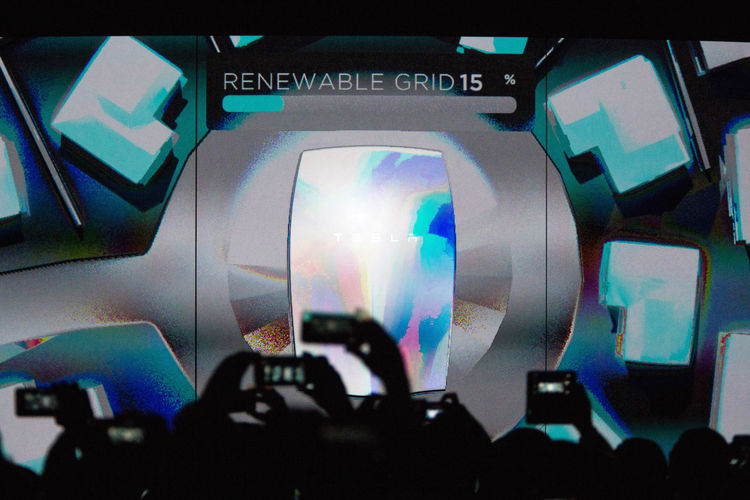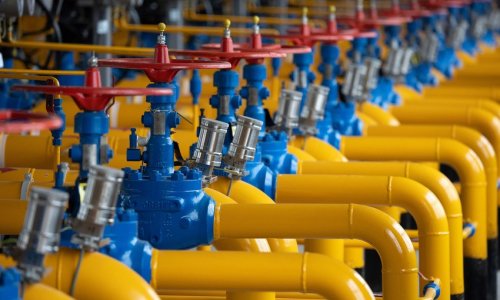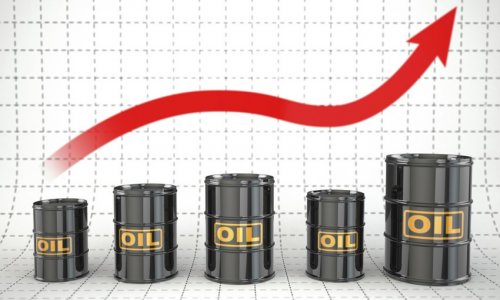Tesla is already building a 5-million-square-foot battery factory. It's not big enough.
That was the message from Tesla Chief Executive Officer Elon Musk this week while discussing, for the first time, the early response to his new product line of storage batteries designed for use in homes and businesses. The numbers are impressive. In the first few days of reservations since the battery announcement on April 30, Tesla took orders worth roughly $800 million in potential revenue, according to figures compiled by Bloomberg Business.
If those numbers were realized, it would be almost as much as the company took in from car sales in the entire first quarter of 2015. "It's like crazy off-the-hook," Musk said during an earnings presentation on Wednesday. "The sheer volume of demand here is just staggering."
Before anyone gets too excited, it's important to note the biggest caveat: reservations don’t necessarily convert to sales. That’s especially true for the home storage batteries sold under the name Powerwall. Anyone can go online and place a reservation, years in advance, with no money down and no commitment to buy. To reserve a Tesla Model X vehicle, by contrast, requires $5,000 up front. Tesla declined to clarify what constitutes a "reservation" for a business or utility-scale project.
There's also no way for Tesla to keep up with the level of demand reflected by the early reservations. The company is sold out of storage batteries until mid-2016. Musk claimed the production of storage batteries alone could "easily" take up the entire capacity of Tesla's $5 billion factory in Nevada, which is scheduled to open next year. The massive facility was originally slated to devote about two-thirds of its output to electric-vehicle batteries. "We should try to make the factory bigger," Musk said.
As for profit, Tesla is probably making very little from early battery sales. Musk said the gross margins will initially be "low" but will rise to "somewhere around 20 percent" after production ramps up at the new factory.
Analysts are still trying to figure out how to value the new business. Baird & Co. and Morgan Stanley don’t yet include the battery storage products in their valuations of Tesla. Getting an accurate estimate of demand may take more than a year, Morgan Stanley’s Adam Jonas wrote in note to investors after Tesla reported earnings. JPMorgan Chase's Ryan Brinkman values the new storage business at $15 a share, or about $1.9 billion. "While we believe it is still quite early to estimate with a good degree of accuracy," he said, "we do look kindly upon it."
Here's the Math on Tesla's $800 Million Storage Battery
Even with the caveats, interest in Tesla's new batteries is massive. Cheap electricity storage is something utilities have pursued for years with little success—a product that has the potential to bolster the power grid and increase the spread of solar power. But Tesla hasn't been willing to publicly put a dollar figure on the reservations. Here's how Bloomberg Business crunched the numbers behind the $800 million:
The Powerwall home batteries designed to be paired with rooftop solar systems received 38,000 reservations, according to Musk's comments during Wednesday's earnings call.
Some customers order more than one battery, with an average reservation amounting to somewhere from 1.5 to two batteries.
Musk described the total demand as "more like 50,000 or 60,000” batteries in early reservations. Let's call it 55,000 batteries.
The Powerwall comes in two designs sold at different prices: $3,000 and $3,500 each. Let's split the difference: $3,250 apiece.
Total Powerwall Orders So Far: $178.8 million.
But the more significant interest in power storage, and the more reliable "reservation" number, is from businesses and utilities.
When Tesla announced the product line last week, the company said it was already working on projects with Target and Amazon and with electric utilities that include Southern California Electric and Texas-based OnCor. That product, called the Powerpack, comes in 100 kilowatt-hour battery blocks.
Musk said the company has received 2,500 reservations for the commercial-scale batteries and that the typical installation comes with "at least 10 Powerpacks." So that's 25,000 units totaling 2.5 million kilowatt hours.
Musk used Twitter last week to disclose pricing for the Powerpack at $250 per kilowatt hour.
Total Powerpack Orders So Far: $625 million.
Put the two estimates together and you have Tesla's grand total for battery reservations: $803.8 million.
"Your math looks right," said Khobi Brooklyn, a spokeswoman for Tesla. "In the coming months, we will work with our distribution partners to ensure that customers are well informed and know what to expect when deliveries start this summer."
(bloomberg.com)
www.ann.az
Follow us !











